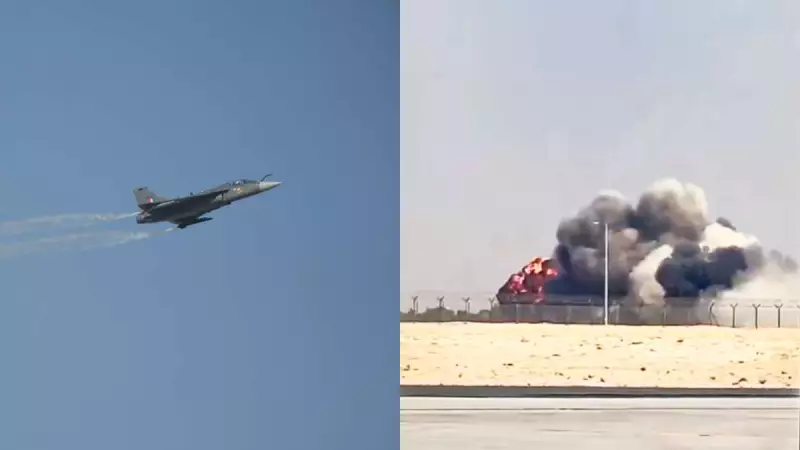
A veteran US pilot has expressed strong criticism against the organizers of the Dubai Airshow for continuing the event shortly after an Indian Air Force Tejas aircraft crashed during a display. The incident, which occurred on November 23, 2025, has sparked significant debate about aviation safety protocols at major international airshows.
The Controversial Decision to Continue
The Dubai Airshow faced intense scrutiny when it resumed activities mere hours after the Tejas LCA (Light Combat Aircraft) crashed during its flying demonstration. The Indian pilot successfully ejected and survived the incident, but the psychological impact on participants and spectators raised serious questions about the event's continuation.
An experienced American pilot, who witnessed the crash and subsequent decision to proceed with the airshow, described the move as "shocking" and "deeply concerning." The aviation professional, with decades of experience in both military and civilian aircraft, emphasized that such incidents typically warrant at least a temporary suspension of flight operations for safety assessments.
Safety Protocols Under Scrutiny
The criticism highlights broader concerns about safety standards at international aviation events. According to the US pilot, the decision to continue the airshow so quickly after a major crash demonstrated questionable judgment by event organizers and raised doubts about their commitment to participant safety.
"Watching the airshow continue as if nothing happened is both shocking and disappointing," the pilot stated. "There should have been at least a day's pause to conduct proper investigations and ensure all safety measures were thoroughly reviewed."
The Tejas aircraft, developed by India's Aeronautical Development Agency and Hindustan Aeronautics Limited, has been a significant achievement for the Indian aerospace industry. The crash during such a high-profile international event represents a setback for the program, though the successful ejection of the pilot demonstrated the aircraft's safety systems functioned as designed.
Industry Reactions and Implications
The aviation community has expressed mixed reactions to the incident and the airshow's response. While some defended the decision to continue, citing the extensive safety protocols already in place, others supported the US pilot's concerns about the psychological impact on participating crews and the need for more cautious procedures following serious incidents.
The crash investigation is ongoing, with Indian and UAE authorities working together to determine the exact cause of the accident. Preliminary reports suggest technical issues may have contributed to the incident, though official findings are yet to be released.
This incident has reignited discussions about safety standards at international airshows and the pressure to maintain schedules despite serious safety incidents. The criticism from an experienced US pilot adds significant weight to these concerns and may influence future protocols at similar events worldwide.
As the investigation continues, the aviation industry watches closely for outcomes that could shape safety standards at airshows globally, with particular attention to how major incidents are handled in real-time during high-profile international events.





